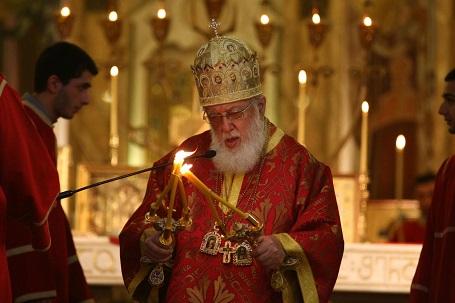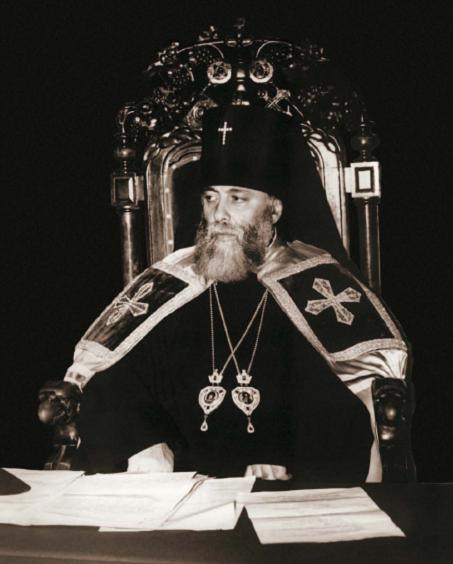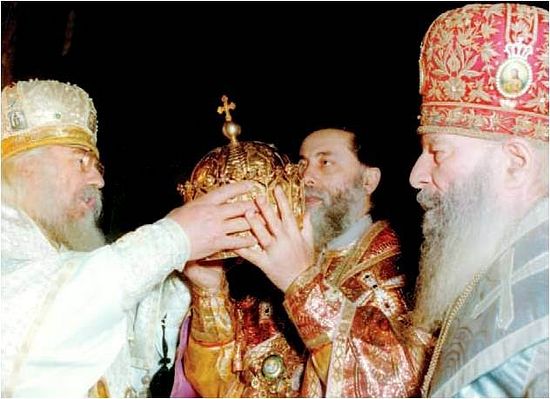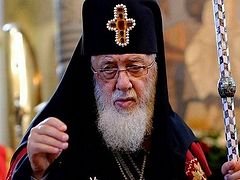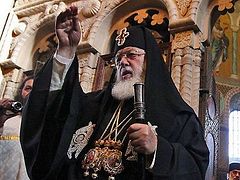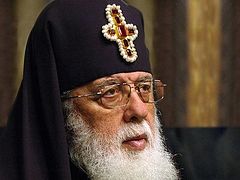On January 4 the Catholicos-Patriarch of Georgia Ilia II turned 83. He has lead the spiritual life of the Georgian Orthodox Church for 38 years.
Marking the festive date a special concert was held at Tbilisi Concert Hall.
During the concert the Patriarch also sung the Church hymns which he had written by him.
The Prime Minister of Georgia, the President and the United States’ Ambassador to Georgia released special congratulations for Ilia II.
Prime Minister Giorgi Kvirikahsvili wished health to the Patriarch and hoped that he would stand by Georgians for a long time.
The President thanked the Patriarch for his "great benefit” to the Georgian people and highlighted that "Georgia is a happy nation to have such a spiritual leader as him.”
The President also stressed that the Patriarch’s advice always helps Georgia in hardships and encouraged the people to continue progress.
"I wish you health and long life for the wellbeing of your flock,” the President said.
The United State's Ambassador to Georgia Ian Kelly wished the Georgian Patriarch "continued health and happiness in the coming year, as well as peace and prosperity for all of the Georgian people.”
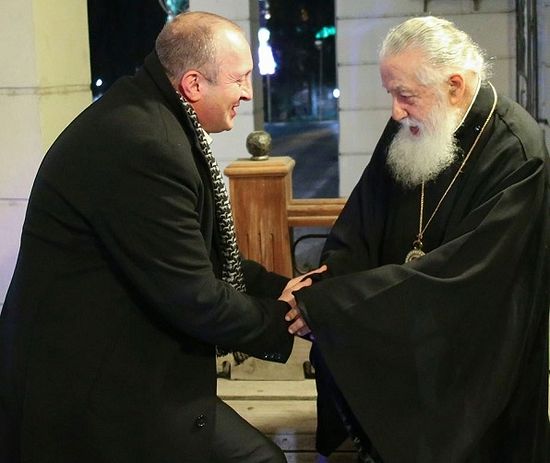 President Giorgi Margvelashvili and Patriarch Ilia II. Photo by the Administration of the President of Georgia.
President Giorgi Margvelashvili and Patriarch Ilia II. Photo by the Administration of the President of Georgia.
Unlike previous years, no special reception was held at the Patriarchate for the Patriarch’s birthday this year, when the people enjoyed the opportunity to personally congratulate their spiritual leader. No exact reason has been provided for the cancelation.
The Patriarch took the responsibility of being the Catholicos-Patriarch of Georgia in a very hard period, when Christianity was suffering significant suppression from Soviet ideology.
Ilia II was born as Irakli Ghudushauri-Shiolashvili in Vladikavkaz, currently Russia's North Ossetia.
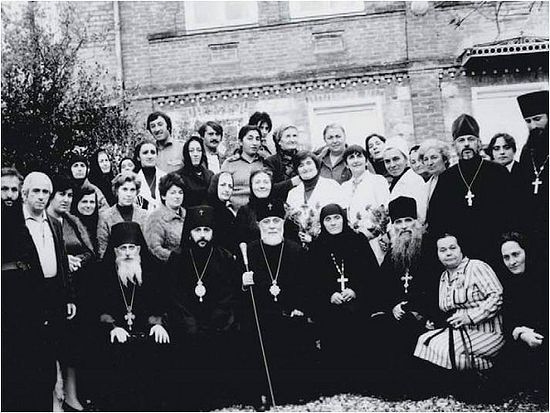 The number of clergy and churches was comparatively less when Ilia II became the Catholicos-Patriarch of Georgia. Photo by the burusi. wordpress.com.
The number of clergy and churches was comparatively less when Ilia II became the Catholicos-Patriarch of Georgia. Photo by the burusi. wordpress.com.
He is a descendant of the influential eastern Georgian mountainous clan with family ties with the former royal dynasty of Georgia - Bagrationi.
In 1967 he was consecrated as the bishop of Tskhumi and Abkhazeti, and was elevated to the rank of metropolitan in 1969.
After the death of Patriarch David V he was elected the new Catholicos-Patriarch of Georgia on December 25, 1977.
In his new position Ilia II initiated a range of reforms, enabling the Georgian Orthodox Church to largely regain its former influence and prestige by the late 1980's.
In 1988 there were only 180 priests, 40 monks, and 15 nuns for the faithful, who were variously estimated as being from one to three million.
There were 200 churches, one seminary, three convents, and four monasteries. During the last years of the Soviet Union, Ilia II was actively involved in Georgia's social life.
He joined the people demonstrating in the capital of Tbilisi against Soviet rule on April 9, 1989, and fruitlessly urged the protesters to withdraw to the nearby Kashueti Church to avoid bloodshed.
This peaceful demonstration was dispersed by Soviet troops, leaving behind 22 dead and hundreds injured. During the civil war in Georgia in the 1990s he called on the rival parties to find a peaceful solution to the crisis.
From 1978 to 1983, Ilia II was co-President of the World Council of Churches (WCC), an ecumenical organization the Georgian Orthodox Church had joined with other Soviet churches in 1962. In May 1997, the Holy Synod of the Georgian Orthodox Church announced its withdrawal from the WCC.
Currently there are about 2,000 active churches and monasteries in Georgia and up to 3,000 clergy and monastics.

